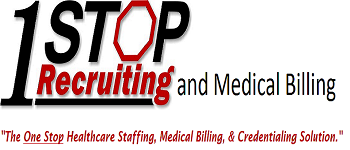NP / Emergency Nursing / Tennessee / Contract / Emergency Nurse Practitioner need for Government Facility in TN Job
|
Sygnetics, Inc
View Company Profile
|
<< Go back
|
| Post Date: |
Apr 28, 2024 |
| Job Type: |
NP |
| Position Type: |
Per Diem |
| Specialty: |
Emergency Nursing |
| Board Certification: |
Board Eligible |
| Degree Required: |
Other |
| Start Date:
| 04/1/2023 |
| Visa Sponsor: |
No |
| Location: |
Tennessee - Waterford |
|
|
|


|
|
Description
Looking for an Emergency Nurse Practitioner to work at a government facility in Mountain Home, TN area
The Role of an Emergency Nurse Practitioner
APRNs are advanced-level nursing professionals who direct patient care, providing primary and specialty treatment. ENPs are APRNs with specialized expertise in acute care in emergency departments and urgent care facilities. They diagnose and treat patients of all ages with an emphasis on disease prevention and health management.
While ENPs treat patients suffering from trauma, injuries and advanced illnesses, they also provide primary care services, as many emergency and urgent care patients are diagnosed with minor health problems.
Emergency nurse practitioner jobs generally are in fast-paced settings such as emergency rooms, intensive care units, and urgent care facilities. These settings often draw a high volume of patients each nursing shift. Emergency facilities typically require ENPs to work long hours, including night shifts, weekends, and holidays. They also may be on call.
Responsibilities of an Emergency Nurse Practitioner
The scope of ENPs’ responsibilities varies. Many states grant nurse practitioners the autonomy to prescribe medications and order laboratory tests without physician supervision, while other states require a greater level of collaboration with other medical professionals to direct treatment. Factors such as these can affect an ENP’s autonomy and specific responsibilities.
Generally, ENPs are responsible for tasks ranging from evaluating the severity of patients’ injuries and illnesses to developing and overseeing treatment plans.
Five essential responsibilities of an ENP are:
1. Performing Triage
Emergency nurse practitioners evaluate the severity of patients’ illnesses or injuries as they enter the emergency department or critical care facility. ENPs must quickly establish whether each patient’s condition is life-threatening.
ENPs consider the critical nature of a patient’s injury or illness when determining who receives treatment first. After this initial evaluation to determine the severity of a patient’s condition, the ENP performs a more thorough examination to pinpoint the cause of the injury or illness and determine how to address it.
2. Stabilizing Patients
Patients with traumatic injuries or life-threatening conditions—such as an airway obstruction or heart attack—require stabilization prior to evaluation and treatment. ENPs must ensure that patients’ vital signs are within an acceptable range, directing the measurement of indicators such as pulse, temperature, and blood pressure.
Once critically ill patients’ conditions stabilize, ENPs can conduct more in-depth testing of these patients for a detailed diagnosis.
3. Ordering Diagnostic Tests
Based on an initial evaluation of a patient’s condition, the ENP may determine the need for further diagnostic testing. If a patient faces multiple health concerns, the ENP typically addresses the most severe problem first, evaluating potential issues through tests such as electrocardiograms (EKGs), X-rays, and ultrasounds. The results of these tests inform approaches to treating patients’ conditions.
4. Coordinating Treatment
ENPs collaborate with a team of medical professionals to direct patient care. Emergency treatment often includes procedures related to:
• Airway obstructions
• Anesthesia and pain management
• Bone fractures
• Ear, nose, and throat concerns
• Gastrointestinal issues
• OB-GYN emergencies
• Psychiatric problems
• Resuscitation
• Skin injuries
• Spinal injuries
• Toxicological exposure
Emergency nurse practitioners must coordinate common emergency procedures such as suturing, casting, making incisions and draining fluids, and splinting.
Open communication with other medical professionals is critical. This communication should include enlisting the assistance of physicians or delegating tasks as appropriate, as well as keeping healthcare teams up to date on patients’ treatments. ENPs also must communicate with patients and family members, and refer individuals for follow-up care as needed.
certified in BLS and ACLS, current license to practice medicine in any State,
For more info call or Text
Mike St. John
xxxxxxxxxxx*
|
Skills
3 years of recent experience providing emergency medical care
|
* Some information such as the email and phone number are hidden unless you are registered and logged-in
Login or Register to View Contact Information
|



